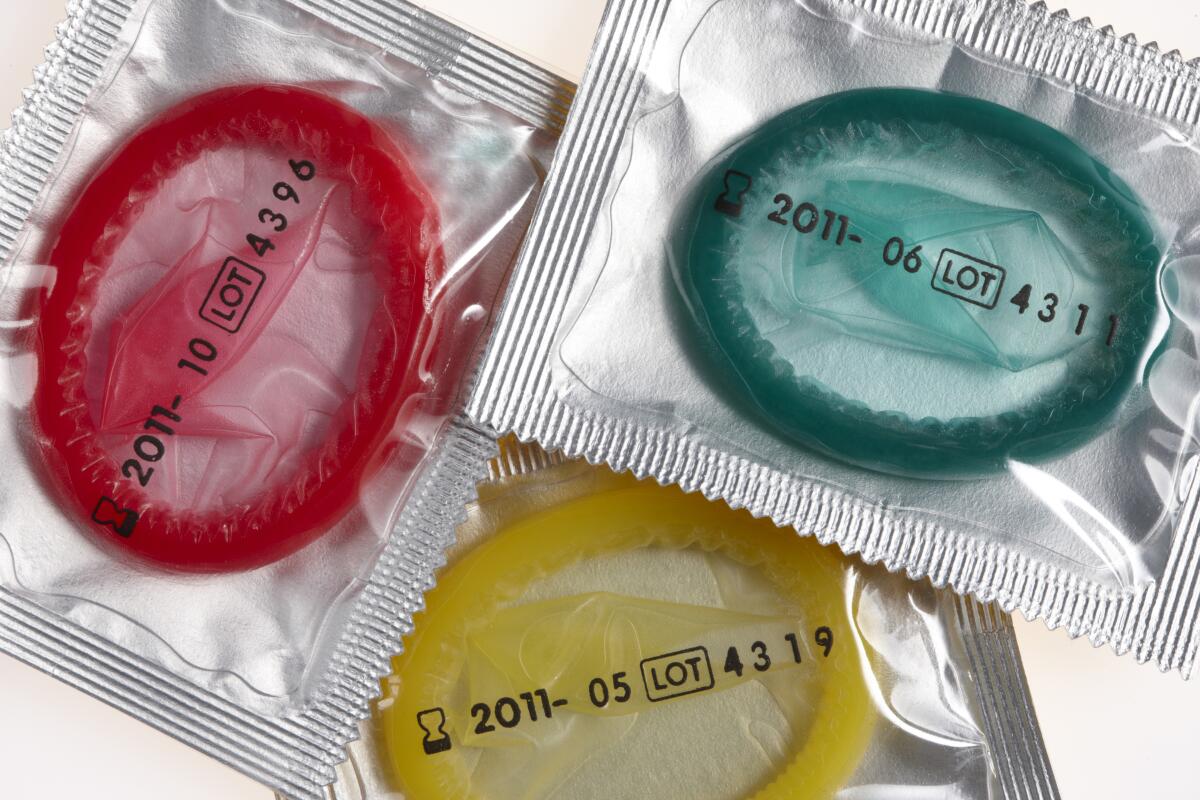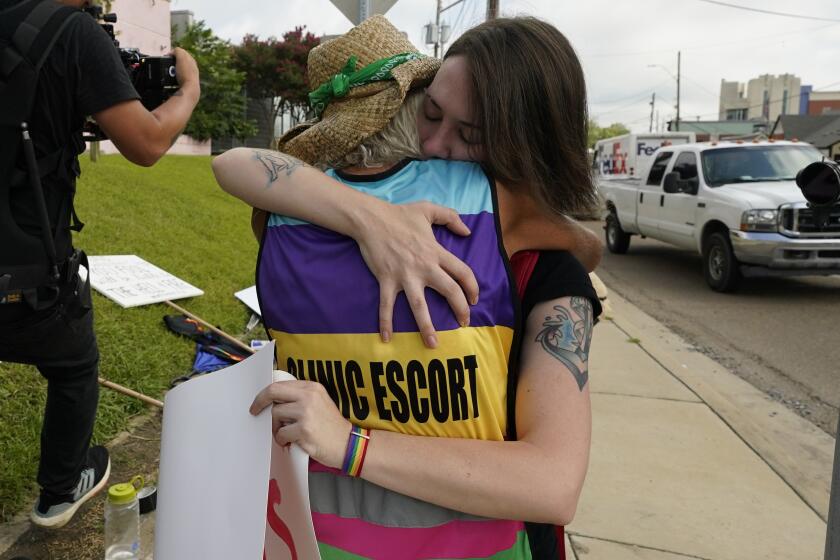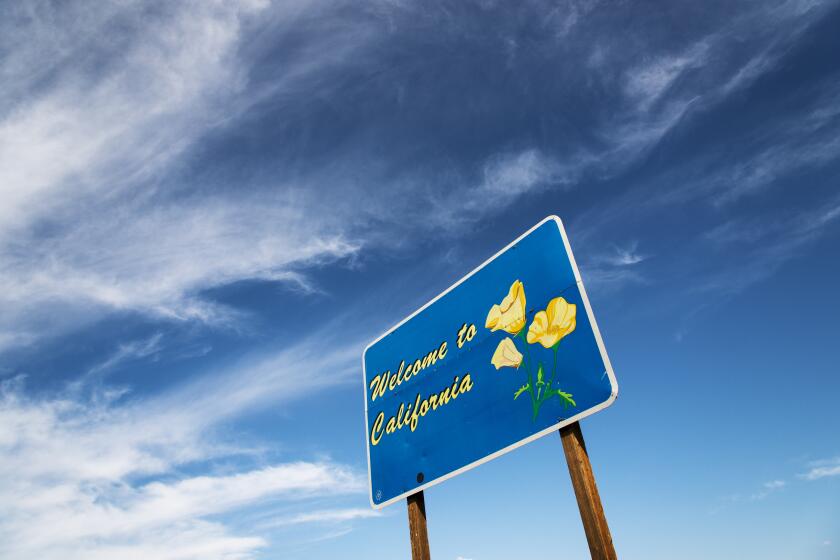Op-Ed: Better sex education in schools can help young people affected by abortion bans

- Share via
Recently, Kansas voters soundly rejected a referendum that would have ensured more abortion restrictions in the solidly red state. This led to predictions that conservatives may pay a price in upcoming elections for the Supreme Court’s decision in Dobbs vs. Jackson’s Women’s Health Organization, which undid the constitutional protection for abortion rights long established by Roe vs. Wade. But while abortion debates grab headlines, for many women, especially poor ones, the battle for reproductive justice begins in the classroom, with the fight for comprehensive sex education.
Only 29 states, and Washington, D.C., require that sex education be taught, according to the Guttmacher Institute. Only 16 states require that the information taught in sex education be medically accurate. Meanwhile, 39 states mandate that sex education must cover abstinence, with 28 of those states requiring that abstinence be stressed. Before the Dobbs ruling, that meant that plenty of young people were not being provided with sufficient tools and resources to avoid unplanned pregnancies. In a post-Roe world it means students will have increasingly limited options should an unplanned pregnancy occur.
The battle over sex education in Texas, which has historically had one of the highest teen pregnancy rates in the country, is being fought by people like Abril Vazquez, whom I first met while working on my 2018 documentary “Reversing Roe.” Vazquez grew up in a Texas community where public schools and the local government emphasize abstinence-only education over comprehensive sex education. After becoming an unwed mother twice while still in her teens, Vazquez has spent much of her adult life working to have Texas provide more complete sexual education to high school students in the state.
The Supreme Court’s ruling will have far-ranging repercussions on the well-being of pregnant people and their families, including psychological distress.
While the U.S. birth rate for teens has been declining since 1991, it remains significantly higher in America than in other Western nations. Girls from a low-income background are at greater risk of becoming young mothers, and data show that close to 20% of teen moms give birth to more than one child before they reach the age of 20. Becoming a teen parent decreases the chance of rising above one’s economic circumstances.
Before Roe became the law women of means had better access to abortion, partly because they had connections and the money to pay for procedures. Without these options, poor women’s futures were at greater risk, often choosing between unsafe providers, if they could find one, or having a baby without the means to support it. With abortion access now significantly diminished, and inconsistent and incomplete sex education available to help young people prevent unwanted pregnancies, poor women will be less likely to escape this cycle of poverty.
Federal education policy can have a significant effect on teenage motherhood. Many studies have found abstinence-only education to be largely ineffective, yet federal funding for such instruction increased under the Trump administration. This was to be expected, as funding for sexual education programs tends to shift depending on the political party of the president, rather than being decided based on the research of what is most effective and best serves our young people.
As someone who has interviewed countless pro-choice and pro-life activists, I know good people can disagree over abortion policy. However, it is hard to understand why anyone would consider it humane to deprive young people of the tools and resources they need to avoid an unplanned pregnancy or sexually transmitted disease and then limit their options when they end up with either.
At a bipartisan gathering of Southern women legislators, I was once asked to address concerns that teaching comprehensive sex education would increase sexual activity, something data have consistently shown is not true. I noted that we teach driver’s education before kids can legally get behind the wheel to make sure they’re prepared and will be as safe as possible. Shouldn’t the same care and concern be applied to sexual education since it is also a matter of life and death?
This mom knew having another child wasn’t the right decision for her. Facing Texas’ new restrictive abortion law, she saw California as her best hope.
In light of the Dobbs decision, sex education should be viewed as a defining reproductive justice issue and should be a priority for candidates in upcoming elections. Regardless of political party, those running for office could elevate the discourse on sexual health in our country by prioritizing this important issue in their platforms.
For one to truly care about reproductive rights, getting more schools to support comprehensive sex education should elicit just as much activism, advocacy and financial support as abortion policy and other reproductive health issues. While Republicans, Democrats, evangelical leaders and irreligious activists battle over the future of abortion in America, they should all be able to find common ground around the idea that we should be providing young people with the tools that will make them less likely to have an unplanned pregnancy in the first place — regardless of the circumstances and communities in which they are born.
Keli Goff was nominated for two Emmy Awards for producing “Reversing Roe.” She is a contributor to KCRW’s “Left, Right & Center.”
More to Read
A cure for the common opinion
Get thought-provoking perspectives with our weekly newsletter.
You may occasionally receive promotional content from the Los Angeles Times.












